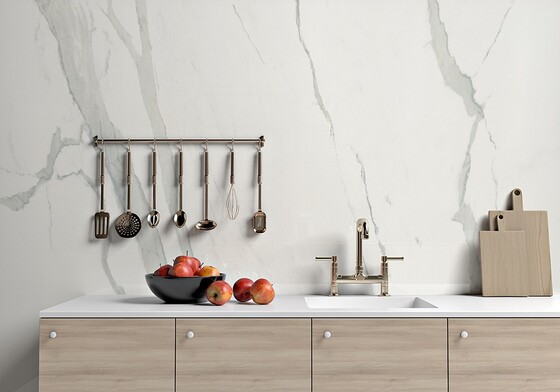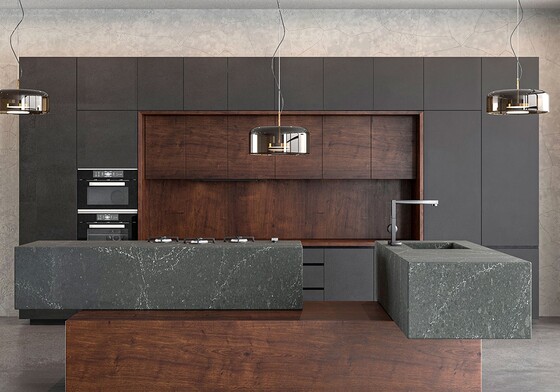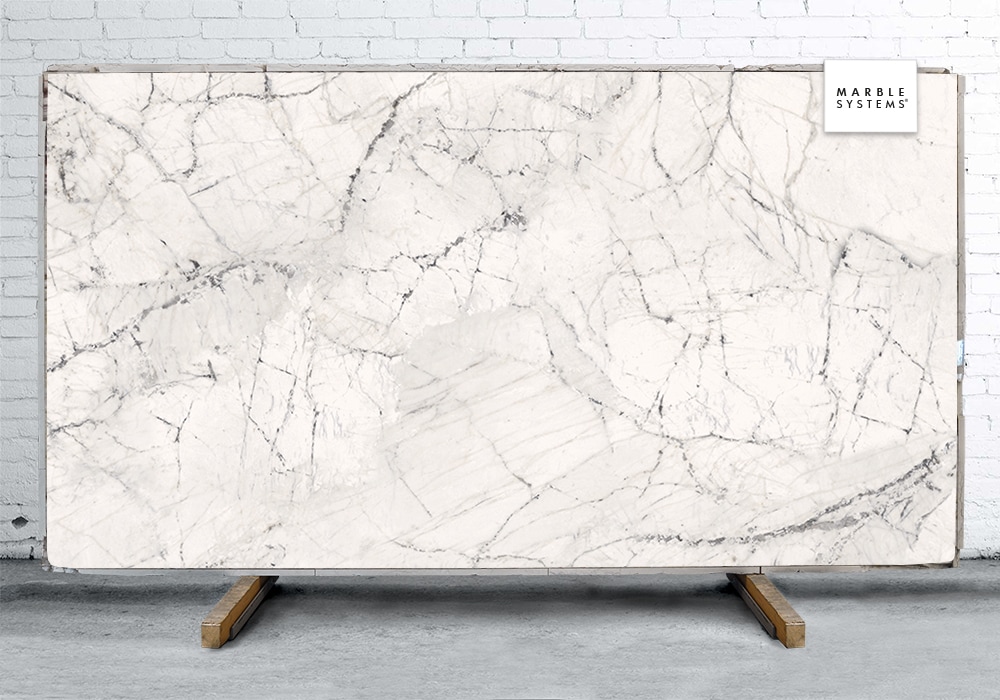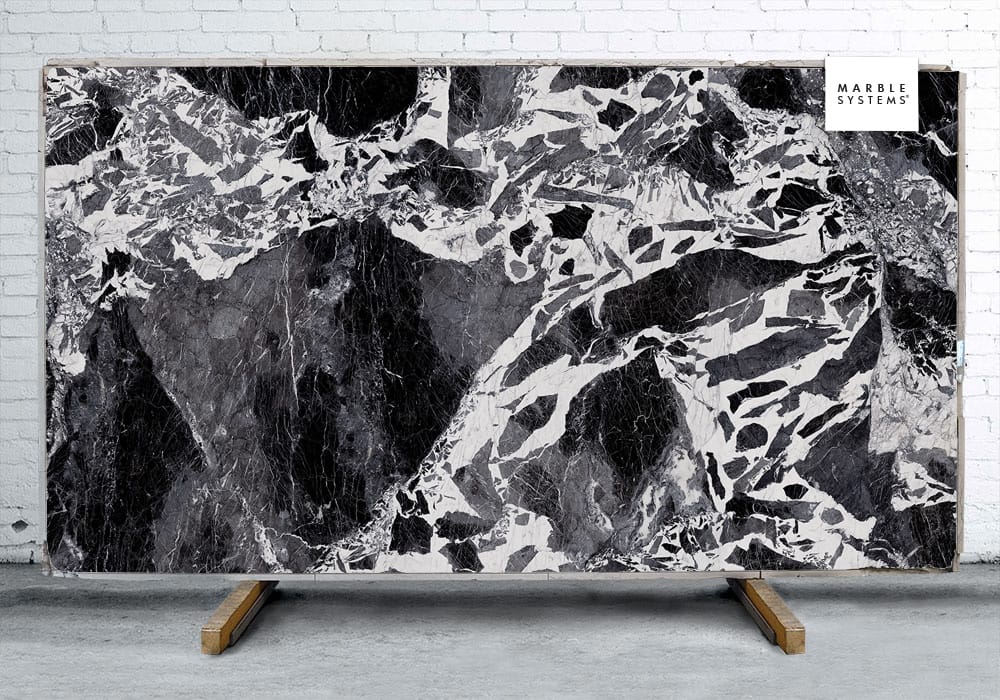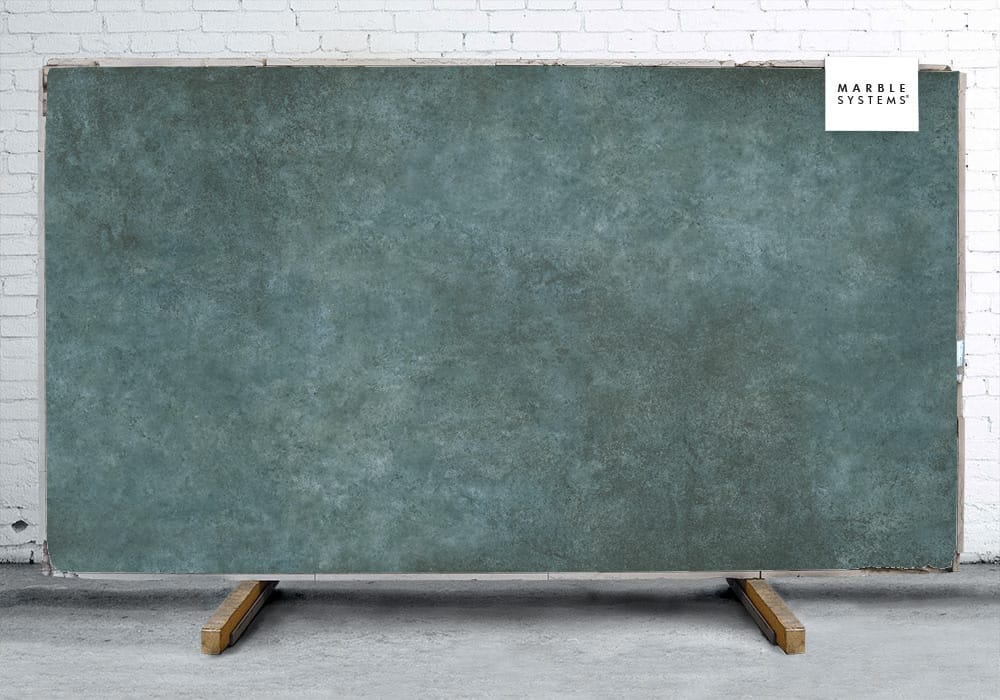Selecting the perfect countertops for your home is a highly personal decision. Your countertops will be a showpiece in the home as well as where you will prepare meals and make memories. Two of the most popular options are quartz countertops and porcelain countertops. These two materials make fabulous additions to both commercial and residential spaces. Find out the Porcelain vs Quartz Pros and Cons;
When deciding on quartz vs porcelain countertops you have to consider your budget, functionality, and aesthetics.
What are porcelain countertops?
Porcelain countertops are made from a form of ceramic. The material is created by combining natural clays and intensely high temperatures (2,200 – 2,600°F). The name porcelain is derived from the Italian word for a cowrie shell, porcellana. Porcelain has been around for roughly 1,500-2,000 years in parts of China and Europe. As the use for porcelain has spread across the globe so has its reputation for being an incredibly beautiful and durable material for kitchen and bathroom countertops.
What are quartz countertops?
Quartz is one of the world’s strongest and most naturally abundant minerals. The finished products seen in kitchens, bathrooms, restaurants, and offices around the world are a man-made fusion of about 90% ground quartz and 10% resin. Quartz countertops made their mainstream appearance about 60 years ago, and have continued to gain a reputation for being beautiful and hard-wearing additions to homes and businesses.
Comparison of Porcelain vs Quartz Countertops
Before making your decision on a quartz versus porcelain countertop it is imperative to know how the two prized materials compare. Below is a list of everything you need to know from the durability to the cost of quartz and porcelain countertops.
After you have a better idea of the pros and cons of porcelain countertops and quartz, we are certain that you will be able to select which material is best for your chosen space.
Appearance
Quartz countertops are made of a combination of ground quartz and resin, which binds the minerals together and hardens into the finished product. Given the suspension of quartz stones inside the resin, quartz countertops often appear speckled. Not to be confused with naturally occurring quartzite, quartz is considered engineered stone due to its resin mixture. Also, don’t forget that you can have a bold natural stone appearance with quartz slabs. As an example, while white quartz countertops offer a timeless and elegant aesthetic, black quartz countertops provide a striking contrast and a modern touch to any kitchen design.
Porcelain countertops primarily consist of kaolinite but materials such as feldspar, silica, and oxide minerals also make up the finished product. You may have heard porcelain referred to as “China Clay” due to its ancient Chinese origin. Porcelain countertops come in a plethora of eye-catching colors, but porcelain in grays, blacks, whites, and browns is the most sought-after.
Finish
The finish options for porcelain countertops are fewer than for quartz countertops. You will find a porcelain countertop in either a matte or high-gloss finish. During production, process porcelain receives its finish whereas natural stone materials are finished via sealing. Glossy porcelain countertops are more flashy while matte-finished porcelain slabs create a more natural and rustic feel.
Quartz countertops however come in several beautiful finishes – polished, honed, or leathered. Leathered quartz countertops have a subtle sheen, polished quartz is glossy and reflective, and honed quartz countertops possess a matte appearance and velvet-like feel.
Durability
Comparing the durability of quartz vs porcelain countertops is the best way to determine which is better suited to withstand use in a given space. Here is how the two materials compare.
Quartz countertops are engineered and deemed virtually indestructible. Quartz is thicker and more heavy-duty than porcelain. The threshold for scratches on quartz countertops is far higher than on porcelain countertops. It’s not impossible to damage quartz counters but they can take heavy use with little to no signs of wear.
With that said porcelain countertops are also considered virtually indestructible. However, they are a lighter material than quartz, therefore porcelain slabs are more susceptible to breaking or cracking. Porcelain countertops need to be installed more carefully than quartz counters. Don’t count porcelain out – it’s nearly 30% stronger than granite – so while lighter than quartz, it is still highly durable. Take note that blunt impact is typically the only thing that damages porcelain countertops, such force can also lead to chipping, scratching, and cracks.
Porosity
When it comes to water tolerance it is crucial to know the porosity of quartz and porcelain countertops.
Porcelain is a dense material that boasts a low rate of water absorption (0.05%). This means that even under extreme water conditions porcelain absorbs just half of one percent (1.0%) of its own weight in moisture.
Due to the engineered nature of quartz countertops, they are non-porous. So there’s virtually no need to worry about moisture damaging the finish of your countertops over time. Quartz bathroom countertops will be a great choice with their non-porous surface, which offers greater durability and ease of maintenance compared to porcelain, which can be more porous and demanding in care.
Stain Resistance
The non-porous quality of quartz countertops also makes them virtually stain-resistant. There is little to nothing strong enough to leave unsightly stains on quartz counters.
Porcelain countertops are extremely low in porosity, but there is a slight element of staining that can occur. While porcelain beats natural stones in stain resistance, highly pigmented liquids, sauces, or chemicals can leave staining.
Heat Resistance
We now know that quartz countertops are non-porous and stain-resistant. But are quartz countertops heat-resistant? The answer is yes and no. Quartz won’t melt if you sit a hot pot directly on its surface. However, it’s best to avoid exposing quartz countertops to direct contact with hot objects to prevent warping and discoloration over time.
Porcelain countertops are the superior choice between the two materials in terms of heat resistance. Porcelain countertops are highly resistant to heat and they don’t appear warped or discolored from direct sunlight.

Cost
Comparing the cost of a quartz countertop to the cost of a porcelain countertop is fairly simple. If you want to understand the porcelain countertops price vs quartz, this might give you an overall idea.
Per square foot, the average cost for a porcelain countertop slab ranges from $55 to $120 dollars. A quartz countertop slab can cost anywhere from $45 to $200 dollars (per square foot).
Installation and Maintenance
One major advantage in terms of quartz vs. porcelain countertop installation is that porcelain can be placed directly over an existing countertop. Quartz countertop installation requires the removal of existing counters. Due to the weight of quartz, they must be installed directly onto cabinetry. If the cabinetry is old or of low quality it will also need to be removed and replaced with cabinets of higher quality.
When measuring porcelain countertops vs. quartz countertops in terms of maintenance, the two materials are quite similar. Both quartz and porcelain slabs can be well maintained with regular cleaning from a dampened microfiber cloth and gentle non-abrasive cleansing solution.
Neither quartz nor porcelain slabs require sealing so you don’t have to spend extra for that process which would be necessary if using a natural stone like granite or marble. As long as you stay on top of spills and stains both porcelain and quartz countertops will look luxurious for years on end.
Porcelain vs Quartz Pros and Cons
Both materials naturally come with respective pros and cons. When the two are compared quartz outshines porcelain countertops in depth and texture. The patterning on porcelain is limited to its surfacing.
Here is a more in-depth breakdown of each material’s benefits and drawbacks.
| Feature | Quartz Countertops | Porcelain Countertops |
| Appearance | Smooth – Can mimic the look of natural stones. Thicker than porcelain countertops. Lots of colors are available. | Smooth – Can mimic the look of natural stones. Has less depth than quartz countertops. Lots of colors are available. |
| Finish | Multiple – (Honed, Leathered, Polished) | Polished (High-gloss) or Unpolished (Matte) |
| Durability | Heavy and more durable upon installation. High chip, crack, scratch resistance. | Durable, but requires careful installation. Can chip and crack more easily. |
| Porosity | Non-porous | Minimally Porous (0.05%) |
| Stain Resistance | Virtually Stain-resistant | Minimally susceptible to staining. |
| Heat Resistance | Moderately High – Can be damaged by sunlight (UV rays) over time. Can also be damaged by continuous contact with hot cookware. | Extremely High – Unaffected by Sunlight (UV rays) over time. |
| Cost | $45 -$200 (per sq. ft.) | $55 -$120 (per sq. ft.) |
| Installation & Maintenance | No Sealing Required. Clean with a gentle cloth and gentle cleanser. Can only be installed over stable cabinetry. Heavy (carrying) Professional installation for best results. | No Sealing Required. Clean with a gentle cloth and gentle cleanser. Can be installed over existing countertops. Lightweight (carrying) Professional installation for best results. |

Which Countertop Material is Right for You? Porcelain vs Quartz?
Porcelain countertops and quartz countertops each have their respective benefits and drawbacks. Both materials make stunning additions to homes and commercial areas. However, overall quartz countertops outperform porcelain countertops. Quartz countertops are generally more of an upfront investment than porcelain countertops but they are also longer-lasting and require less maintenance.
With a quartz countertop, you get all the aesthetic benefits of natural stones like granite and marble without the hefty upkeep. The beauty and strength of quartz are one of the reasons why we are proud to offer our clients a high-quality selection of stunning quartz countertops. Click to explore our collections of luxury slabs and contact us to get more information about them! Stop by our tile store Anaheim and browse our selection of tiles today.



